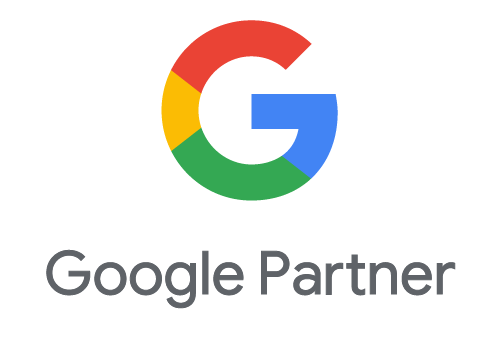Email marketing might feel a little old school to some, but if used right, there’s plenty of evidence out there to suggest it’s still one of the most effective forms of digital marketing. Systems and platforms for managing and sending out your emails have been around for a while, and if you’ve done some research already, you’re probably feeling more confused than when you started. There’s an incredible amount to choose from and get your head around.
You might just want to know what email marketing platform is best for you. Or the pros and cons of different marketing platforms. There are platforms that just allow you to set up and send an email, there’s ones with custom designs or the ability to import HTML templates, with automation and personalisation. There are ones with integrated CRM systems. How do you know which email platform to choose?
So, we’ve done the legwork for you; outlining what you need to consider when choosing an email platform, and comparing the most popular choices.

What to consider when choosing an email marketing platform?
Knowing what you need from an email marketing platform is the first step in working out which one hits the mark for you.
What do you want to achieve?
Sounds simple, but email marketing can help businesses achieve many different goals. Think about your business strategy and marketing targets. Are you a B2B or B2C business – this can make a difference in what you need to get out of it.
There is some overlap of course, but some typical goals for email might be:
- Nurturing customer relationships
- Generating sales and revenue
- Growing event attendance
- Increasing enquiries
- Driving web traffic
Knowing what you want out of it can help you decide what platform you need based on what it can do and what analytics it provides.
Who’s your target audience?
Do you have a single key audience, or do you have many to cater for? This might help you decide whether you need a simpler platform with less customisation features, or if you need something with all the bells and whistles on. For example, segmenting and personalising emails can lead to an astonishing 760% increase in email revenue. So, if you have a broader audience and the data available, considering a platform that allows you to do this, could be vital.
Another thing to consider when thinking about your audience is the data that you have on file – mainly is it GDPR and PECR compliant? You may need to address this before you can begin your marketing strategy.
What know-how do you have in your team?
If you have a digital marketing guru or web whizz in your team, then you might find you get more out of an email platform that allows you to code or design your own emails. But if you’re a small business with little knowledge of coding or design, then a simpler platform with pre-designed templates and styles might be your best bet. These can usually be customised to the point of uploading your own logos.

What are the most popular email marketing platforms?
Mailchimp is one of the most widely used email marketing platforms, known for its user-friendly interface, robust features, and scalability. Some of the key features and benefits include:
- Drag-and-Drop Editor: Mailchimp offers an intuitive drag-and-drop editor that allows users to create professional-looking email campaigns without any coding skills. It also allows for customised HTML templates.
- Segmentation and Personalisation: With Mailchimp, you can segment your audience based on various criteria such as demographics, preferences, and past behaviour. This allows you to deliver personalised content that resonates with different segments of your audience.
- Automation: Mailchimp’s automation features enable you to set up automated email campaigns based on triggers such as subscriber sign-ups, purchases, or website activity. It also offers pre-built journeys to get you started. This helps you nurture leads, engage customers, and drive conversions.
- Analytics: Mailchimp provides robust analytics tools that allow you to track the performance of your email campaigns in real-time. From open rates and click-through rates to conversion metrics and revenue generated, you can gain valuable insights into the effectiveness of your campaigns.
HubSpot is an all-in-one marketing platform that offers a suite of tools for inbound marketing, including email marketing. Some key features and benefits of HubSpot are:
- Integrated CRM: HubSpot’s email marketing platform is fully integrated with its CRM system, allowing you to manage contacts, track interactions, and personalise communication based on customer data.
- Smart Content: HubSpot’s smart content functionality enables you to deliver personalised content to different segments of your audience based on their interests, preferences, or stage in the buyer’s journey. This helps you deliver the right message to the right person at the right time.
- Reporting and Analytics: HubSpot provides comprehensive reporting and analytics tools that allow you to track the performance of your email campaigns in real-time. From open and click-through rates to conversion metrics and revenue generated, you can gain valuable insights into the effectiveness of your campaigns and make data-driven decisions.
Campaign Monitor is another popular email marketing platform that offers powerful features and advanced functionality. Here’s some key features Campaign Monitor offers:
- Pre-Set Templates: Campaign Monitor offers a wide range of professionally designed email templates that are fully customisable.
- A/B Testing: Campaign Monitor enables you to conduct A/B tests on different elements of your email campaigns, such as subject lines, content, or calls-to-action. This allows you to identify what resonates best with your audience and refine your strategies accordingly.
- Analytics: Campaign Monitor provides real-time results through interactive dashboards, with metrics such as open rates, bounce rates and deliverability. This will help you make data-driven decisions about future campaigns.
There are plenty of others out there, but we think these are some of the most popular and effective platforms, depending on your requirements.
Need help picking the right platform and setting up your email strategy? Contact us for a FREE one-hour consultation.














